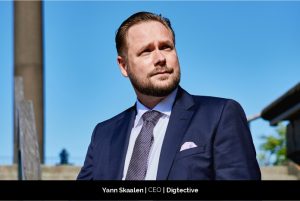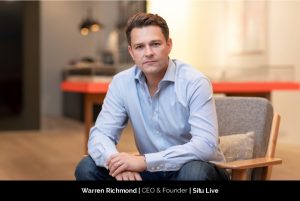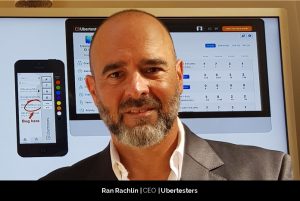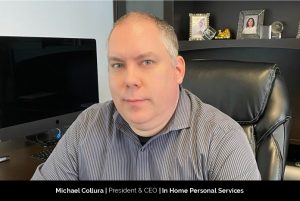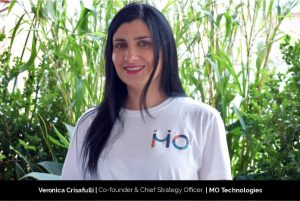Indiana Gregg: Building a Fair Playing Field for All in FinTech Space
The 10 Most Influential Business Leaders to Follow
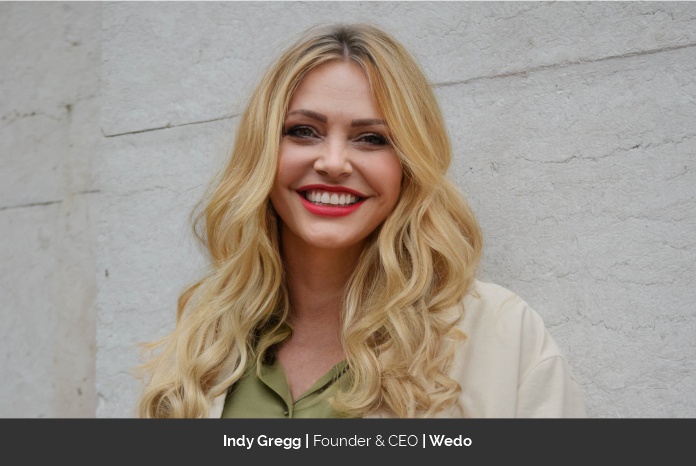
When
She has been driven from childhood, brought
up at the advent of the digital economy. Gregg started building websites in
1992, writing flurries of code for the new digital storefronts of the creative
industry. Looking back, she said: “Google wasn’t a thing. They were probably in
a garage dreaming about their search engine.” She knew early on that
traditional employment was not her style, so she fed her entrepreneurial muse
as a freelance web developer, consultant and startup founder.
From an early age Gregg knew she wanted to
be an entrepreneur, selling lemonade on the side of the street. She describes
herself as decisive, and introverted, and uses both characteristics to dive
deep into problems and solve them to make a valuable impact on the world. When
asked what her biggest obstacle was, Gregg said: “I have always had a funnel of
ideas… so learning how to funnel the right creative decisions so that there is
a problem that is going to be solved has helped me create a quality filter for
me to sort through.” A self-described empathetic idealist, she had to work hard
to create clarity and take decisive actions that aligned with her mission.
Gregg grew up in Terre Haute, Indiana in a
working class family. Born in the 70s, she came into a world that was socially
volatile and the makeup of her town was changing culturally and racially. She
remembers when her neighborhood started to be integrated: “A black family moved
into our neighborhood and this kid, Grant, became my best friend. My mom gave
us some money to get ice cream and go swimming.” They arrived at the Shriners
pool and “We got there and the woman wouldn’t let Grant in.” Disappointed and
confused, she returned home and informed her mother what happened. Her mother
started to cry, and Gregg recognized that something was incredibly wrong. “I
realized at that point that this was a serious problem and it didn’t make
sense,” she said.
In school, she was an outlier as well. She
suffered a speech impediment, which resulted in ridicule and bullying at
school. The world wasn’t accessible to her and she retreated inside. It drained
her confidence and Gregg found herself not wanting to attend school. It took
the prompting of a kind speech therapist who used the power of song to improve
her enunciation. She would take her love of music and her desire to create an
environment of inclusion with her in the companies she would later start.
Gregg has a bachelor of science from Indiana State University. She credits her philosophy class with helping to clarify her personal vision and ethic that she would use to make decisions and to create space for herself to be creative and solve problems. Though the assignment was submitted for a grade, it proved a useful guide for Gregg as she graduated and entered the world of business.
She dived into her tech background working for giants like Sony, Louis Vuitton and Digits as a freelancer. She found herself building websites and becoming entrenched into the music industry. While Gregg was paving her own path as a freelancer, she turned to creating her own music. Touring around Europe, she sang as an outlet for her experience and values, expressing the injustice in her world and in the world at large.
Her husband left her while she was touring,
forcing her to reinvent herself as a freelancer and single mother. She produced
her album: Women at Work and
continued freelancing. Gregg found it challenging to maintain the many hats,
but she continued to fight on, singing about injustice and expressing her pain
and determination to succeed.
That injustice would find her in her music
as well. Facing the behemoth of internet piracy, Gregg became the face of
opposition towards platforms like Pirate Bay. Thrusting herself into the
spotlight, she actively campaigned to get the platform shut down, because it
was unfair to the artists who worked endlessly to make and promote their music.
Faced with mounting criticism, Gregg
continued to fight for copyright enforcement and the removal of sites like
PirateBay. “I don’t care about my personal career,” she said “ I’m gonna go for
this.” This sense of justice propelled her into her next venture in the music
industry.
Motivated to democratize the music industry
she pioneered one of the first streaming services with a mission to democratize
the music industry. She went to the labels and told them “people won’t want
downloads in the future”. Gregg started Kerchoonz, one of the first music
streaming platforms. The industry resisted the change, but Kerchoonz grew to
14.5 million users.
Kerchoonz hit roadblocks during the 2008
recession, and ultimately sold off the technology as advertising budgets shrunk
and cost per impression went down. Spotify had gained massive market share and
it was no longer sustainable. An entrepreneur since childhood, Gregg saw an opportunity:
women couldn’t afford to go get their nails done due to the economic downturn.
To cut down on cost, women would turn to doing their nails themselves, so Gregg
started GRÜV, an e-commerce beauty website. “That sold before we even got the
product shipped to us”. She realized she was onto something and the business
still runs today.
Ever the idealist, GRÜV did not scratch the
social impact itch that drove Gregg into entrepreneurship. She returned to
freelancing to get into the market and explore what was going on. She worked on
crypto projects, helping new coins with their ICOs (initial coin offering).
Working in the fintech space inspired her to use this technology to make entrepreneurship accessible.
Gregg founded Wedo in 2019 to provide an
alternative freelancing site to platforms like Upwork and Fiverr. “They really
prevent people from getting together and forming community” the Wedo founder
says, citing the extensive efforts these platforms go to to ensure that people
don’t take their work off platform. “Anybody should be able to pick up their
phone and start working.”
Wedo’s business model operates from a
banking model rather than from a ‘middle man’ model. Gregg says she had an
epiphany: “If you want to beat the bank, you have to be the bank!” She started
creating her prototype around this idea that the transaction fees would fund
the company and enable Wedo to provide the essential applications freelancers
need to get started with no upfront costs.
“I don’t think that entrepreneurship should
be treated in such a way where entrepreneurs have to pay to play,” Gregg
states. “We believe that entrepreneurship should be a human right. Access to
entrepreneurship should be easy.” Wedo is providing a platform that allows freelancers
to collaborate, issue invoices, meet with clients and schedule consultations.
It also functions as a social network where freelancers can demonstrate their
expertise, create communities and market their services. The objective: making
entrepreneurship accessible and a reality for more people.
“The freelance market is a 1.2 trillion
dollar market in the U.S.,” Gregg states. 2021 and the Great Resignation
foreshadow that more and more office and tech jobs are going remote and
flexible. Wedo reduces the number of 3rd party applications that freelancers
need to get started, getting freelancers into the market and connected with
clients faster. It seeks to promote a global community around freelancing
without exploiting freelancers.
This project requires a team, both internal
and freelance to move this project to the public. In 2020, Gregg started
acquiring talent to boost the development, maintain diversity and create
community around the new platform. When asked how she goes about finding team
members, she said “Integrity is the anchor for other things in people’s
personality. We don’t hire people who don’t have accountability to the peers
they work with.” She strives to have a culture of empathy and collaboration,
and to embed those values in the application itself.
With a widespread, international team, her
team members hail from Spain, Germany, Ireland, the U.K., the U.S and more.
Gregg met her chief diversity officer, Pattie Howard when she was active in the
music industry. Howard had this to say about the Wedo team: “Indy has organized
an extremely talented group of people unique in their area of expertise yet
focused in the same direction with a common goal. Their skill set coupled with
who they innately are is exactly what makes Wedo so unique… it’s the sum of
who we all are that equals the success that Wedo is”. She met Kirsten Granzow,
her chief marketing officer in France, who went on to help her market her
album: Woman at Work. Working closely
with both of these women and developing lasting friendships cemented trust and
moved them toward shared goals. “I think respect for your teammates is really
important.” she said about the character of her team. She works very closely
with them, bouncing ideas off of them and receiving honest, clear feedback.
Since her platform is on the cutting edge
of the fintech industry, Gregg encourages her teams to develop themselves
during working hours. “If you don’t know something, take some time to go learn
it,” she says. “The more you know, the more you feel confident about the
position you are in.” She also provides flexibility for Wedo employees, using
performance-based metrics instead of hourly. “We have days of the week where
you don’t take any meetings so that you don’t get bombarded,” Gregg says. “We have
a 5-10 minute standup at the start of the day. The rest of the day, we don’t
bug each other with excessive meetings.”
Wedo is poised for a limited launch in
April to the first thousand users who have signed up on the waitlist, providing
freelancers a platform to perform their services. The Wedo team have been
conducting a private beta for the past six months. “It’s important that you
don’t strap an engine to a bicycle and call it a motorcycle,” she says “With
fintech, when you are dealing with people’s finances you want to be able to
create something that is robust and secure.”
These are essential features for
freelancers and their clients, whose user experience will determine whether
they stay on the platform or go elsewhere. “More and more companies will be
working with shared and distributed workforces,” says Gregg. “What I mean by
that is you may employ that person for one third of their time basically
they’ll be sharing this employee with another business. What this does is it
creates variety for the employee and helps them move between companies under
confidentiality.” Wedo works to provide immense value and ease of use to all
users in order to continue to engage that market.
The tentative full launch for Wedo is set
for September, where it will be open for all users, but the app is now
available in most countries to download to pre-register. “Make sure you reserve
your username,” Gregg says. That way users can keep their social media handles
and Wedo handle consistent for their brand. Gregg created Wedo to be a place
that is good for collaboration and good for people. She seeks to empower
freelancers with the platform they need to take control of their life and the
way they work. “If you’re not doing what you love, why not?” she asks people
interested in freelancing. “How can we help?






